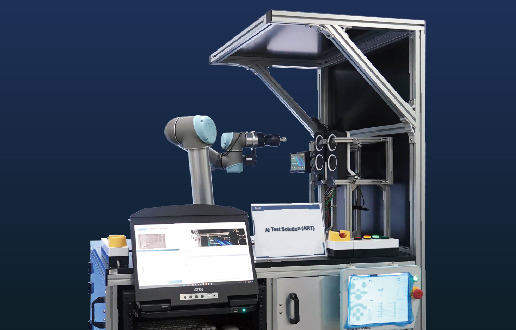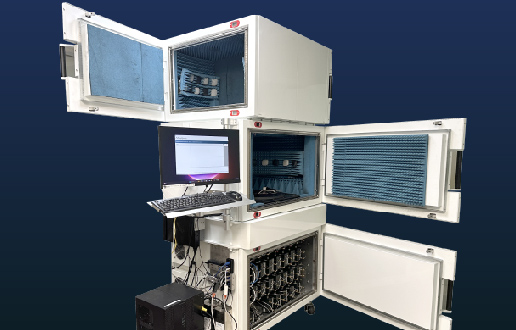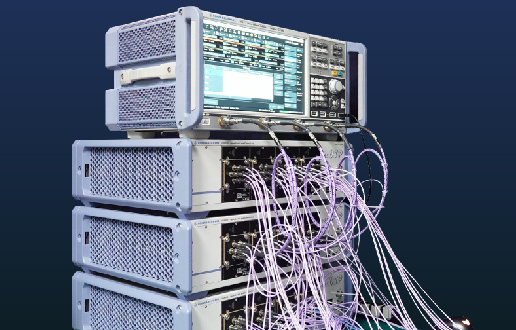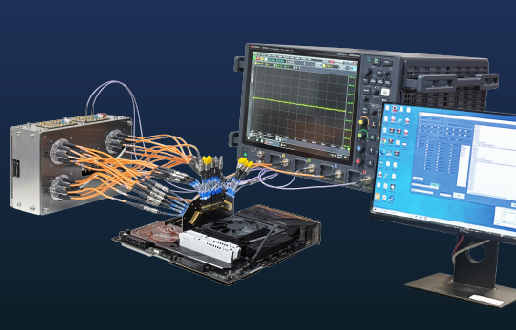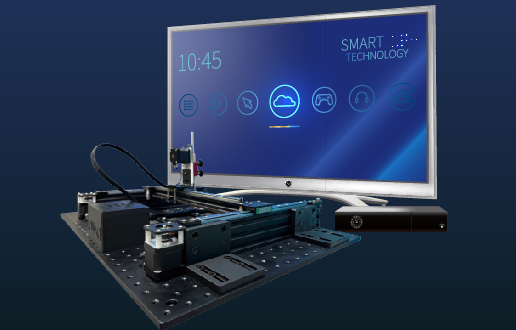Speed and stability are the two most important metrics for a wireless router. To obtain data for wireless routers, most labs will run single-device tests. As wireless routers evolve, more devices will start relying on wireless connections to the Internet, such as smart home appliances, TVs, set-top boxes, gaming consoles, and more. If a wireless router allows a large number of devices to connect to it, can the performance be maintained to a certain degree?
Below, two flagship wireless routers are compared. These are high-performance products that consumers can easily access. Both of these wireless routers support Wi-Fi 6 (802.11ax). A test will be conducted to see how both of these routers perform.
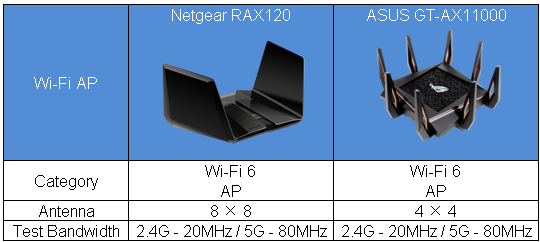
The test will be divided into two parts. The first part will be testing the maximum number of connections of the wireless routers (up to 200 devices). The second part will be testing the transmission capabilities with different numbers of connections (up to 100 devices). The connection devices used during the test will be simulated by a wireless device simulator with a 2×2 antenna. During the tests, we will eliminate interference from external factors by placing the devices in an isolation box.
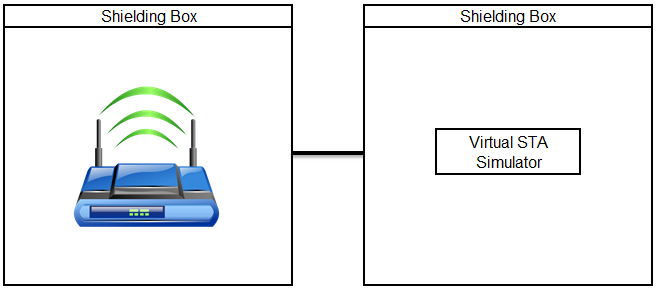
Test 1: Maximum Connection Test
Before the transmission test, we must first confirm the maximum number of connections of these two wireless routers and also conduct a latency test to observe the performance of the router when a large number of devices are connected. This first test will be conducted with 50, 100, 150, and 200 wireless devices.

In the table above, it can be seen that the ASUS GT-AX11000 has a very stable performance with 50 devices. However, when it exceeds 60 devices, it will start to malfunction, making it impossible to be tested after 100 devices. The Netgear RAX120 can successfully reach 200 devices and the latency is kept within 100ms, which most ordinary users are comfortable with.
Test 2: Transmission Test
The purpose of this test is to observe the transmission capability of wireless routers and whether it can be maintained when a large number of devices are connected. In this test, 10 devices will be added each time until the number reaches 100. We will also conduct a latency test simultaneously to observe latency performance.
2.4G

The uplink of the ASUS GT-AX11000 dropped by approximately 30% when more than 40 devices were transmitting data. On the other hand, the uplink of the Netgear RAX120 only dropped around 10% when more than 90 devices were transmitting data. Based on our experience, this situation improves with higher-standard routers. However, this level of performance is considered to be good for consumer products.

For latency, the Netgear RAX120 maintained just below 1,000ms. The ASUS GT-AX11000 exceeded 1,000ms after 40 devices. Users will immediately notice the lag when the latency is over 1,000ms. The results of the delay between the device and the router were as follows, both routers exceeded 1,000ms after 40 devices were connected.
5G

During the 5G transmission test, the ASUS GT-AX11000 had a stable transmission of over 800Mbps for under 60 devices. For the Netgear RAX120, the transmission capability started decreasing as the number of connected devices increased. The gap between the highest and lowest performance was an 80% difference.
During the 5G delay test, the ASUS GT-AX11000 maintained a delay of under 1,000ms for under 60 devices. When the number of devices exceeded 80, the delay of the Netgear RAX120 was greater than 1,000ms. The delay even went over 10,000ms when the number of devices exceeded 100.

Conclusion
The Netgear RAX120 and the ASUS GT-AX11000 are both marketed as flagship Wi-Fi 6 wireless routers. From these results, it can be seen that as long as the number of connected devices stays under 40, both transmission and delay times can remain stable. However, when the number of connections reaches 60, issues will start to occur. This is still fairly reasonable for these two products since the number of connected devices will not exceed 40 in the average consumer home.
Allion has decades of testing experience, not only providing clients with professional market evaluations and competitive analysis reports but also customizing user scenarios and solutions, helping improve our clients’ products and user experience. We have worked with major international manufacturers and brands, allowing them to seize market opportunities and win over consumers among their peers.
























